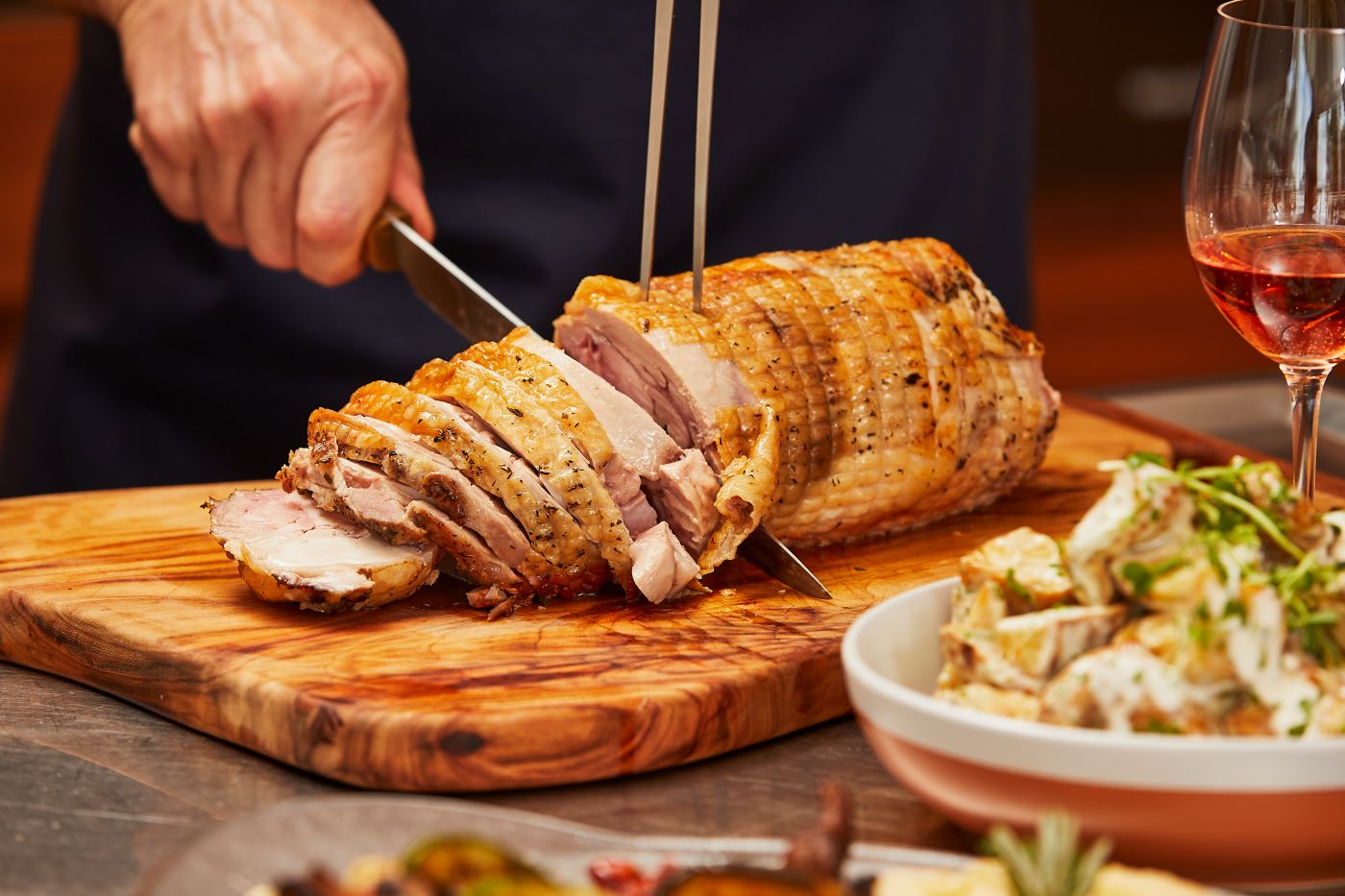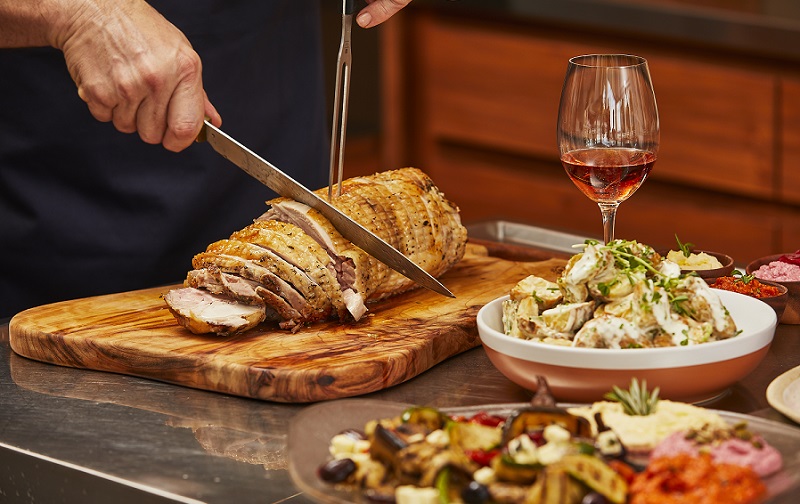How to boost your immune system this Winter

Having a strong immune system is important all year round, but particularly so as we approach flu season. During the colder months, we spend more time indoors, in heated environments and with the windows closed. These factors significantly contribute to allowing all sorts of bugs being able to spread and multiply more easily.
Thankfully there are a few things you can do to naturally give yourself an immune boost to help ward off harmful pathogens. Doing so might help you avoid the lurgy in the first place. If you’re unlucky enough to catch it, a strong immune system can help you more quickly and effectively get the upper hand and overcome the illness.
Give yourself an immune boost with these top tips
- Eat more plants. The best foods that boost immunity are plants. Why? Well, plants deliver nutrients, antioxidants, fibre and a whole range of other healthful micro-components to our bodies. Plants really are nature’s best medicine but remember to get them in their natural, whole form. A vitamin supplement or a highly processed ‘plant-based’ food is not the same and won’t make you as healthy as eating fresh fruits, vegetables, grains, legumes, nuts and seeds. Eating a variety of them is important too.
- Prioritise sleep. If you don’t get enough sleep, then you become more susceptible to illness. On the other hand, good sleep gives our bodies a chance to repair and heal overnight, getting our immune system in good shape to fight off pathogens. If you’re having trouble sleeping, this article on bedtime tips may help.
- Cut out processed foods. Processed foods aren’t natural and have often undergone many industrial processes to extend shelf life or make them more palatable. Unfortunately they tend also to be full of sugar, fat, salt and artificial additives. None of these ingredients will make you healthy or help your immune system.
- Eat less sugar. Unfortunately sugar spikes suppress the immune system and leave your body less able to ward off illness. Natural sugars in whole fruit are fine as they also come with fibre to slow transit. Try to avoid fruit juices, soft drinks, processed foods and sweets as much as possible as these provide big hits of added sugar and can play havoc with your blood sugar levels.
- Exercise more. Not only does physical activity move your immune cells through your body during the activity, but it also promotes a lasting presence of these immune cells for up to three hours after exercise is completed. This higher level of immune activity can help protect you from illness. Moderate exercise is best as intense bouts of activity can actually suppress immunity.
- Decrease your stress. When you’re stressed, you’re more prone to illness. There’s a couple of reasons for this, the main one being that you’re likely suffering inflammation from the raised hormone levels, which can interfere with your immune system function. Stress can also have a knock-on effect to your sleep as well. For tips, read this article on how to combat stress with good nutrition.
- Drink more water. Hydration is important, mainly so that nutrients can be moved about the body and toxins can be removed. Because so many bodily processes involve water, dehydration can make your whole metabolism sluggish, which leaves you more susceptible to sickness.
Immune boosting foods & their key ingredients
If you’re wanting to learn how to boost your immune system, one of the best ways is to include immune boosting foods that have these key ingredients.
Vitamin C – it’s no surprise to see this one on a list of immune boost ingredients. Vitamin C is an antioxidant that has the potential to help you fight colds and flu. In fact, research shows that taking Vitamin C when you have a cold can reduce its duration by 14% in children and 8% in adults. To get Vitamin C naturally, opt for fresh fruits and vegetables. Try our Eggplant Parmigiana or Smokey Tomato Chicken Bake.
Vitamin A + E – like Vitamin C, Vitamins A and E are both powerful antioxidants that help immune function by providing a protective role in infections caused by bacteria and viruses. Get some of our Vegetable Lasagne with Pesto into you for all those lovely fresh vegies and house-made tomato sauce.
Herbs + Spices - Herbs and spices are known to provide potent amounts of antioxidants that can naturally help to support your immune system. Garlic for one can reduce the incidence of the common cold by as much as 30%. Other important herbs and spices include turmeric, ginger, oregano, rosemary, thyme, cinnamon and chilli. Choose a Goan Fish Curry, Chicken Skewers with Lemongrass + Chilli or a side dish of Broccoli with Garlic Oil?
Zinc – is known for its powerful healing properties so it’s no wonder that it can also help reduce the duration of a common cold. Zinc is found is plentiful amounts is seafoods and meats, such Prawn Risotto with Mascarpone + Citrus or Baked Pork + Veal Meatballs Veneto style.
Vitamin D – not technically a vitamin but actually a hormone, Vitamin D is also essential for your immune system. Many studies have linked Vitamin D deficiency with certain illnesses and disease. The best way to get Vitamin D is to expose your skin to sunshine, but you can also obtain small amounts in the diet in fish, eggs and some fortified dairy.
In summary, if you’re wanting to cruise through this Winter with an immune system that’s strong enough to ward off illness and infection, or at least minimise it, there are several things you can do. What you eat can play a big part, so choose foods that boost immunity such as plants full of antioxidants, vitamins, herbs and spices to start with. Other dietary tips that can contribute to an immune boost include, cutting down on processed and sugary foods plus drinking more water.
Lifestyle-wise, make sure you get some safe sunshine on your skin to boost Vitamin D, incorporate moderate exercise into your routine, aim for a good night’s sleep and lower your stress as much as you can.










